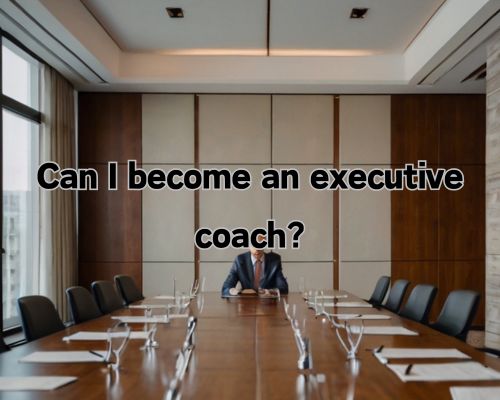
Can I Become an Executive Coach? Essential Steps and Insights
Can I Become an Executive Coach? Essential Steps and Insights
Are you considering a career shift toward executive coaching? Organizations are looking for skilled executive coaches as they aim to improve their leadership and foster professional growth. Yes, you can become an executive coach, but it requires dedication, relevant experience, and a commitment to continuous learning.
Understanding the nuances of leadership and honing your ability to guide others through complex business challenges are crucial steps on this journey. See https://www.makeithappencoaching.ae/.

Executive coaching is about more than just offering advice. It also involves developing strong client relationships and navigating team dynamics effectively. With at least a decade of leadership experience, you’ll be well-equipped to leverage your insights into actionable strategies for your clients. This profession can offer financial rewards and the satisfaction of witnessing tangible growth in those you mentor.
Embarking on this path means opening doors to collaborate with high-profile clients and substantially impact their careers. Executive coaching allows you to blend your professional experiences with your passion for leadership development, setting you up for a fulfilling and rewarding career.
Becoming a Certified Executive Coach
Becoming a certified executive coach involves understanding the coaching role, deciding on a certification path, and selecting an appropriate coaching program. Successful executive coaches excel in leadership, communication, and emotional intelligence.
Understanding Executive Coaching
Executive coaching is not therapy. It helps leaders enhance their performance by developing specific skills like leadership skills, communication, and emotional intelligence.
As an executive coach, you guide clients in achieving their professional goals using tailored strategies. Clients expect you to be a masterful listener and an adept navigator of emotions. You provide a strategic toolbox for clients to explore paths and make informed decisions.
Paths to Certification
To become a certified executive coach, you need to choose the right certification. The International Coach Federation (ICF) is one of the leading organizations providing reputable coaching certifications. Certification programs often require formal training, practical coaching hours, and assessments to validate your skills.
Another option may include specialized programs focusing on executive coaching. The path you choose will define the standards of practice you adhere to, and the recognition you receive in the coaching industry.
Selecting the Right Coaching Program
Selecting an ICF-accredited program ensures that you receive high-quality training and meet industry standards. Programs vary in focus; some emphasize practical skill development while others may include specialized content.
Look for programs that offer personalized training and real-world applications to ensure you’re prepared for diverse coaching scenarios. Consider factors like course content, duration, cost, and the extent of support provided to determine the best fit for your goals. For more, visit https://www.makeithappencoaching.ae/.
Developing Your Coaching Practice
To establish a successful executive coaching practice, you need to focus on mastering core competencies, fostering strong client relationships, and managing business operations. Each aspect is essential to building credibility and achieving personal and professional growth as a coach.
Mastering Key Coaching Competencies
Start by honing coaching skills like effective communication, active listening, and emotional intelligence. These skills are fundamental to guiding clients through their leadership development journey.
Invest time in obtaining relevant certifications, such as those from the International Coach Federation (ICF), to enhance your expertise and credibility. This formal education equips you with a strategic toolbox crucial for problem-solving and decision-making in various coaching scenarios.
Focus on continuous self-improvement by staying updated with the latest coaching trends and techniques. Engage in personal growth activities such as attending workshops or networking sessions, which can significantly enhance your ability to serve your clients better.
Building Client Relationships
Establishing strong client relationships is foundational to your practice. Prioritize understanding each client’s unique needs, goals, and challenges. This bespoke approach allows you to tailor your coaching strategies, ensuring that clients feel valued and understood.
Define your coaching niche to effectively connect with your ideal clients. Whether you are a leadership coach or specialize in another area, clearly articulating your expertise helps attract clients seeking your specific set of skills.
Maintain ethical standards and build trust by demonstrating transparency, honesty, and integrity in all your interactions. By consistently providing value and showcasing commitment to their success, you establish long-term partnerships with your clients.
Managing Your Coaching Business
Efficiently managing your coaching business is key to sustaining growth.
Create a structured business plan outlining your goals, target market, and marketing strategies. This plan serves as a roadmap, guiding your business decisions.
Implement tools and systems for administrative tasks.
These can include scheduling, client management, and billing. They ensure smooth operations.
Utilizing technology enables you to focus more on delivering value to your clients.
Invest resources in marketing your services across various platforms.
Use online platforms and networks to expand your reach and credibility.
By leveraging these tools, you can effectively communicate the unique benefits you offer and attract new clients.